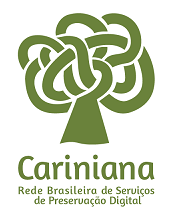“Movimento cult” in Rio de Janeiro and discourses about coco de Pernambuco
DOI:
https://doi.org/10.5433/boitata.2021v16.e42408Keywords:
Cult, Cultural Rodas, Coco, Colonial project, Cultural IndustryAbstract
This article deals with tensions, practices, discourses, between people, places and narrative disputes, around what is generically called popular culture. As an excerpt, we identified the circuit of cultural circles existing in the city of Rio de Janeiro - here called “Movimento Cult” - as a typical expression of these tensions, and that, in some way, refreshes the power relations already demarcated by the country's folklorists since the beginning of the Republic. As an example, we analyzed one of these tensions related to Coco carried out on these wheels, which caused clashes deriving due to issues of culture, race, native origin and tradition. It is characterized by ethnographic research and its data collection procedure is netnography and participant observation, as tactics to deal with issues related to contemporaneity. Based on that, reports were identified of how this Movimento reproduces the colonial project implicit in the dynamics of dominant elites in the face of dominated groups. Finally, it transforms this popular culture into an elite consumer product for itself, where its political strength, its aspects of cultural resistance and the participation of the people are extinguished every day, given the price of tuition for classes and tickets for school. the shows, leaving their creators out of the roda.Downloads
Download data is not yet available.
References
ADORNO, Theodor W. Indústria cultural e sociedade, 1903‐1969. São Paulo: Paz e Terra, 2002.
ARAÚJO, Z. de. Folclorização e Significado Cultural do Negro. Disponível em: www.ideario.org.br/neab/kule2/Textos%20kule2/Zezito.pdf Acesso em: 13.05.2020.
BRANDÃO, Carlos. Rodrigues. Vocação de criar: anotações sobre a cultura e as culturas populares. In: Caderno de pesquisa, v.39, n°138, 2009, p.715-746.
CALDAS, Waldenyr. Cultura. 5ª ed.. São Paulo: Global, 2008.
COMPANHIA FOLCLÓRICA DO RIO-UFRJ. “Histórico”. 2020. Disponível em: https://www.eefd.ufrj.br/ciafolc/hist%C3%B3rico Acessado em: 27 de dezembro de 2020.
GRUPO ZANZAR. “Sobre o Grupo zanzar”. 2020. Disponível em: https://web.facebook.com/notes/1499954830074166/ Acessado em: 31 de dezembro de 2020.
NICOLAU, Michel. Diversidade cultural no sistema ONU: um lugar para cultura. In: BRANT, L. (org.). Diversidade Cultural: globalização e culturas locais: dimensões, efeitos e perspectivas. São Paulo: Escrituras; Instituto Pensarte, 2005 (Democracia Cultural;1), pp.131-148.
SIMAS, Luiz Antonio; RUFINO, Luiz. Encantamento (sobre política de vida). Rio de Janeiro; Mórula Editorial, 2020.
SODRÉ, M.. A verdade seduzida: por um conceito de cultura no Brasil. 3ªed. Rio de Janeiro; DP&A, 2005.
TAUSSIG, Michael. The devil and commodity fetishism in South America. Chapel Hill: TheUniversity of North Carolina Press, 2010, pp. xi – xiv; xv-xvii; 3-38. (Tradução em português: TAUSSIG, Michael. O diabo e o fetichismo da mercadoria na América do Sul. São Paulo: Editora da Unesp, 2010, pp 11-15; 17-20; 23 -69).
ARAÚJO, Z. de. Folclorização e Significado Cultural do Negro. Disponível em: www.ideario.org.br/neab/kule2/Textos%20kule2/Zezito.pdf Acesso em: 13.05.2020.
BRANDÃO, Carlos. Rodrigues. Vocação de criar: anotações sobre a cultura e as culturas populares. In: Caderno de pesquisa, v.39, n°138, 2009, p.715-746.
CALDAS, Waldenyr. Cultura. 5ª ed.. São Paulo: Global, 2008.
COMPANHIA FOLCLÓRICA DO RIO-UFRJ. “Histórico”. 2020. Disponível em: https://www.eefd.ufrj.br/ciafolc/hist%C3%B3rico Acessado em: 27 de dezembro de 2020.
GRUPO ZANZAR. “Sobre o Grupo zanzar”. 2020. Disponível em: https://web.facebook.com/notes/1499954830074166/ Acessado em: 31 de dezembro de 2020.
NICOLAU, Michel. Diversidade cultural no sistema ONU: um lugar para cultura. In: BRANT, L. (org.). Diversidade Cultural: globalização e culturas locais: dimensões, efeitos e perspectivas. São Paulo: Escrituras; Instituto Pensarte, 2005 (Democracia Cultural;1), pp.131-148.
SIMAS, Luiz Antonio; RUFINO, Luiz. Encantamento (sobre política de vida). Rio de Janeiro; Mórula Editorial, 2020.
SODRÉ, M.. A verdade seduzida: por um conceito de cultura no Brasil. 3ªed. Rio de Janeiro; DP&A, 2005.
TAUSSIG, Michael. The devil and commodity fetishism in South America. Chapel Hill: TheUniversity of North Carolina Press, 2010, pp. xi – xiv; xv-xvii; 3-38. (Tradução em português: TAUSSIG, Michael. O diabo e o fetichismo da mercadoria na América do Sul. São Paulo: Editora da Unesp, 2010, pp 11-15; 17-20; 23 -69).
Published
2021-02-04
How to Cite
Leite da Silva, G., & Rodolfo Martins, B. (2021). “Movimento cult” in Rio de Janeiro and discourses about coco de Pernambuco. Boitatá, 16(31), 107–116. https://doi.org/10.5433/boitata.2021v16.e42408
Issue
Section
Dossiê
License
Copyright (c) 2021 Boitatá

This work is licensed under a Creative Commons Attribution 4.0 International License.
Boitatá esta licenciada com CC BY sob essa licença é possível: Compartilhar - copiar e redistribuir o material em qualquer suporte ou formato. Adaptar - remixar, transformar, e criar a partir do material, atribuindo o devido crédito e prover um link para a licença e indicar se mudanças foram feitas.




















